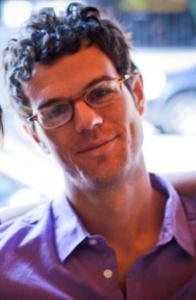It’s the end of March and at the University of Massachusetts at Amherst (UMass-Amherst), that means midterms. For two semesters in a row, students in my Intro to Political Theory and American Political Thought classes have participated in the Wikipedia Education Program. Their midterm assignment is simple: write an encyclopedia style essay with at least 10 references to be published on Wikipedia. The introduction of Wikipedia into classroom comes with a whole set of new challenges – for both me and my students – picking topics, using wiki mark-up language, new citation rules, as well as the old familiar problem: how to conduct good research. As the deadline for the assignment approaches, and the emails pile up, I am reminded of why these challenges are worth it.

Wikipedia is always present in the classroom – whether it’s invited to attend or not. Students often draw from Wikipedia as a primary source. Too often, it is the place where research begins rather than ends and a semester rarely goes by without a minor or major case of plagiarism. Last semester, when I first introduced the Wikipedia project, a student asked: “how are we supposed to find a topic if it’s not on Wikipedia?” The Wikipedia assignment forces students out of their comfort zone. It pushes them to look beyond the easy sources and take a new approach to research (a new approach that is really an old approach). Good research begins with the search for a question.
The first task and the first struggle students confront is how to find a topic. The assignment breaks students’ dependence on easy answers and familiar subjects and reaffirms the value of the search. Wikipedia offers some resources to help identify stubs and missing articles, but many times students discover ample noteworthy material by digging through Congressional records, public policy briefs and Supreme Court cases. By placing Wikipedia at the center of the assignment, it overcomes the fundamental concern that nearly all professors share: Wikipedia is NOT a source. Making Wikipedia the end, not the means, revivifies the research experience. It transforms Wikipedia from a problem to a solution.
Many of the students I meet view college as an obligation. But higher education is an extraordinary privilege. In the U.S., just 30 percent of adults over 25 have a college degree. And in the world, it’s less than 7 percent. The opportunity for education comes with the responsibility to produce and share knowledge. These are values shared among faculty and graduate students, but often ignored in undergraduate teaching. Wikipedia helps to break down the barriers between knowledge consumption and production. It allows students to share their work with a global audience. And it helps students to cultivate the authority of authorship and become more discerning consumers and producers of information.
Students walk away from class with a deeper understanding of research. They walk away with the skills and comfort to edit, revise and add content to Wikipedia. And they walk away with the pride of publication. The Wikipedia assignment opens our classroom to the world. It gives new meaning to the work that we, as students and faculty, do in the classroom and in college.
Edward Erikson teaches Intro to Political Theory and American Political Thought at the University of Massachusetts. He was twice nominated for the UMass Distinguished Teaching Award in 2009-10 and 2010-11. He received his M.A. in Communication, Culture and Technology at Georgetown University and is currently a Ph.D. candidate in Political Science at UMass Amherst. His dissertation explores tensions in democratic theory and practices surrounding homelessness in America. He can be contacted at eerikson@polsci.umass.edu or follow him on Twitter @EdwardErikson.

Can you help us translate this article?
In order for this article to reach as many people as possible we would like your help. Can you translate this article to get the message out?
Start translation